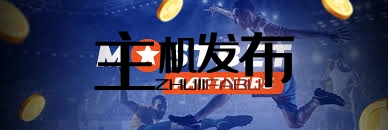Best ways to use poker 1

Best Ways to Use Poker
Poker is not just a game of chance but a complex strategy that can be applied in various aspects of life. From honing your decision-making skills to understanding psychological concepts, there are numerous ways to leverage poker beyond the felt. Whether you're a recreational player or a seasoned pro, the benefits of playing poker can extend to business, finances, and personal development. One particularly informative resource for online gaming can be found Best ways to use poker bonuses for winning 2025 https://mostbetindir-az.com/.
1. Understanding Probability and Odds
One of the primary skills developed through poker is a strong understanding of probability and odds. Every time you consider whether to call, raise, or fold, you weigh the potential payoff against the likelihood of winning that hand. This analytical approach cultivates more precise decision-making skills that can be transferred to everyday situations, such as assessing risks in investments or making important life choices.
2. Enhancing Emotional Intelligence
Poker is a game of not only cards but also emotions. Players must read their opponents, gauge their emotions, and fake their own in order to maintain a strategic edge. This aspect of poker can enhance your emotional intelligence, teaching you to better understand and manage not only your feelings but also those of others. Skills acquired through poker can improve your interpersonal relationships, both personally and professionally.
3. Strategic Thinking and Planning
Success in poker is heavily dependent on strategic thinking and the ability to plan several moves ahead. Each decision impacts possible future plays, similar to chess. By engaging in this kind of forward-thinking, you can improve your problem-solving skills and make better choices in business situations, sports, or everyday life.

4. Discipline and Patience
One of the greatest lessons poker teaches is the importance of discipline and patience. It can be tempting to chase losses or act impulsively during a game, but successful players know that sticking to a strategy often yields better long-term results. This self-control can help you stay focused on your goals in all areas of life, minimizing rash decisions that could lead to adverse outcomes.
5. Financial Management
Many players use poker as a practical way to sharpen their financial management skills. Understanding bankroll management is crucial in poker; players must know how much they can afford to lose without it affecting their living standards. This principle can be applied to budgeting and financial planning in personal life, encouraging responsible spending and saving habits.
6. Networking Opportunities
The poker community is vast and filled with opportunities for networking. Whether you’re playing in local tournaments or online, meeting fellow players can lead to valuable connections. Networking through poker can open doors in various professions, create friendships, and even lead to collaborations on different projects. The social aspect of the game is just as important as the strategic mindset it fosters.
7. Stress Relief
Playing poker can also serve as an excellent stress relief activity. Engaging in a game allows you to momentarily step away from life's pressures and focus on strategy and competition. This mental break can be beneficial for your overall well-being. Additionally, the social interaction involved in playing with others can enhance your mood and promote a sense of community.

8. Tournament Play and Competition
Participating in poker tournaments exposes players to high-stakes situations where quick thinking and strategic execution are vital. The competitive nature of tournament play can mimic real-life pressures, helping you learn how to perform under stress. Applying these experiences to work projects or competitive scenarios can sharpen your performance when it counts.
9. Mastering Bluffing Techniques
Bluffing is one of the most exciting components of poker. Learning when and how to bluff can significantly increase your success rate at the table. This skill translates well into business negotiations or personal interactions where presenting a certain front can influence outcomes. However, it is essential to use this ability ethically and responsibly.
10. Continuous Learning and Adaptation
The landscape of poker is ever-changing, and successful players are those who commit to continuous learning and adaptation. This mindset fosters growth and improvement, which you can carry into mechanisms like personal goal setting, professional development, and cultivating new skills. Staying curious and willing to adapt can significantly affect your success in various life aspects.
Conclusion
Poker is more than just a game of chance; it's a multifaceted tool that can offer substantial benefits in various life areas. By understanding probability, enhancing emotional intelligence, and developing strategic thinking, players can leverage their skills for personal and professional growth. Whether you're playing for leisure or looking to sharpen your skills, the lessons learned from poker hold immense value.




Best ways to use poker 1:等您坐沙发呢!